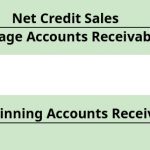
Whether you’re a part-qualified or fully qualified accountant, understanding the nuances of public practice and industry will guide you toward a fulfilling career path. For example, as a senior manager or director in practice, the buck often stops with business development. You’re expected to expand services and generate income for your firm or partners through networking, prospect meetings, tendering and – ultimately – winning new customers. Some accountants will appreciate this atmosphere, while others may look for faster-paced environments. These are some of the pros and cons to consider if you want to pursue private accounting. Depending on your personal and professional priorities, working in public accounting may come with both positives and negatives.
Hopefully these tips will help you determine when, if ever, is the right time for you to make the jump from public accounting to industry. Another reason to leave as a senior or a manager is that gaining industry experience in managerial positions is extremely valuable. Most controller or CFO positions are looking for candidates who have a solid mix of both public and private experience, especially at a higher career level. Signs that it may be time to leave public accounting may include an overwhelming feeling of burnout, lack of motivation, a sense that you are not progressing in your career, or not completing your workload.
- If you leave public accounting prior to being promoted to senior, you will be leaving behind the opportunity to develop valuable skills that come from leading a project.
- By 2024, 80% of non-IT professionals will develop IT products and services, with over 65% using low-code/no-code tools.
- In fact, industrial accounting, as anticipated earlier, takes into account data related to production processes.
- Actual cost industrial accounting, on the other hand, is the best solution for companies that have to undergo market fluctuations and therefore need to review the cost of production on a constant, even weekly basis.
- Essential (and time-consuming) accounting functions like payroll, compliance work, data entry, some communications, onboarding and planning will be automated.
Whether public accountants work in private practice or for an international accounting firm, they are responsible for understanding every client’s unique needs and how to sell on wayfair helping them make the best financial decisions. In conclusion, industry accounting is an essential component of the financial landscape. It enables businesses to meet industry-specific requirements, address unique challenges, and communicate financial information effectively.
Additionally, those in industry need a strong commercial mindset and a genuine interest for the sector in which they work. Industry accountants, by contrast, are concerned with the internal finances of the single company by whom they are employed. They carry out reporting and analysis in order to evaluate performance, formulate projections and create budgets for their company. Whichever path you choose, it’s important to build a strong foundation of accounting knowledge and skills to succeed in public or private accounting. Private accounting, also commonly called industry or corporate accounting, refers to accountants who work for a single organization within its internal finance department.

Finally, industrial accounting also makes it possible to evaluate and control inventory, an area that produces a few effects not only on the operational side, but also on the economic and equity side. Hence the need for an industrial accounting system capable of producing precise and what is net income and how does it affect your bottom line accurate information to optimize the risk of stock holding. According to GAAPweb’s research, those in Finance Director jobs and CFO roles are more likely than other industry professionals to remain in the role for over 10 years.
Tax accounting
Though many businesses leave their accounting to the pros, it’s wise to understand the basics of accounting if you’re running a business. To help, we’ll detail everything you need to know about the basics of accounting. Standard cost industrial accounting is the optimal solution for businesses in which the cost of production remains constant over time, or at least undergoes minimal variations. This solution, however, cannot be chosen by companies that have a production cost that varies significantly throughout the year. Going into specifics, we speak of industrial margin, meaning the difference between selling price and the related production costs.
Financial accounting
Alongside conducting formal studies, those in junior accountant jobs learn what it takes to support and communicate with clients, suggest snap but educated business decisions, and perform under pressure. Every organisation needs a numbers expert, so you’ll be laying the foundations of future employment – especially if you’re a Top Ten trainee. Getting at least one busy season under your belt as a senior before leaving for industry is valuable accounting experience that I highly recommend.
Role of Industry Accounting in Financial Reporting
Nowadays, digital documents and eSignatures can meet the needs of most businesses. Other examples include working with environmental consultancies like Rye Strategy to help calculate and offset a business’ emissions. Environmental auditing identifies ways clients impact the environment, then integrates environmental cost with financial cost to find solutions that work for both metrics.
The types of industrial accounting
As long as you have a solid tech stack so you can operate and collaborate the stockholders equity section of the balance sheet efficiently internally and with clients, there’s no need to go back to pre-COVID work habits. Instead, focus on how you can use it to drive more value to your business and your clients’ businesses. Your ability to combine imagination and experience with financial data trends (and many other factors) still needs a human touch. Technology will provide you with more time for planning, data analytics, and fulfilling your advisory role. So instead of just keeping your clients compliant, technology will afford you the time and insight to focus on making their business (and your firm) more profitable. On the contrary, companies with a timely accounting system have the ability to adjust their focus because of the more accurate margin indications that will be able to guide business decisions in the immediate future.